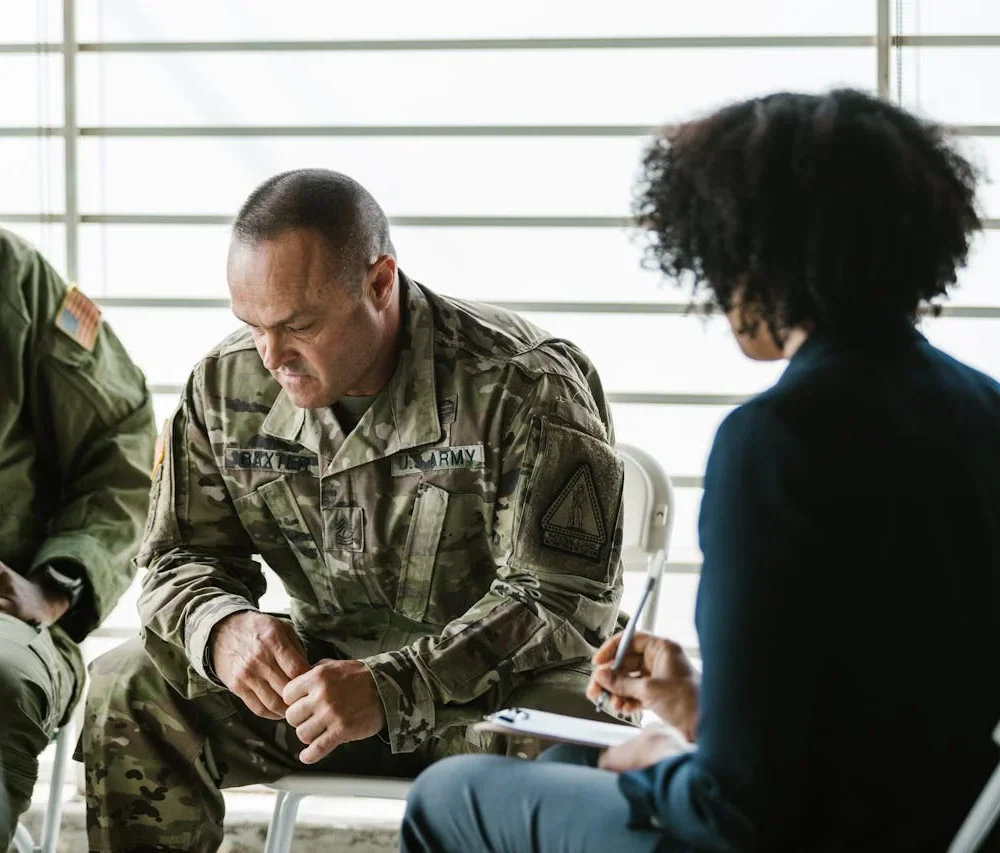
Last Updated on November 18, 2025 by Beth Skwarecki
Understanding what happens if you fail a drug test in the military is important for service members, families, and anyone trying to make sense of the intersection between discipline, mental health, and substance use. The military takes drug use seriously because readiness and safety depend on reliability, alertness, and clear decision-making. While each branch has its own procedures, the consequences of a positive drug test follow a predictable framework that blends accountability with opportunities for clinical care when appropriate.
A failed drug test typically triggers an immediate response that includes confirmation testing, an investigation into the circumstances, and a formal review under the Uniform Code of Military Justice. The outcome can range from administrative separation to court-martial, depending on the substance, prior conduct, and whether the service member voluntarily self-reported or sought help before testing.
Although consequences can be severe, the full picture includes pathways to treatment, behavioral health evaluations, and early intervention opportunities that many people are not aware of.
One of the most common questions people ask is whether a single positive test automatically results in discharge. The short answer is that it usually does lead toward separation, but the process is not instantaneous.
In this article, I’ll review how a confirmed positive test moves into a command-driven assessment: Command leadership evaluates the circumstances in detail, including whether the use was accidental, whether the individual has a documented need for behavioral health support, and whether past performance shows a pattern of risk or a history of responsibility. Even in cases where discharge is recommended, the service member still has procedural rights throughout the review.
How Military Drug Testing Works and Why It Is Strict
The military drug testing system is designed to detect a wide range of substances with high accuracy. Tests occur during routine screenings, random inspections, unit sweeps, and pre-deployment or post-deployment evaluations.
Most samples go through sophisticated labs certified to ensure reliable outcomes. False positives are rare, but the military protects against error by requiring lab confirmation of any positive result before command takes action.
The strict approach is rooted in mission requirements. A single lapse in judgment can put entire units at risk, especially in high-risk roles where clear cognition and emotional stability are non-negotiable. From an operational perspective, it is not only about rules but about safety, chain-of-command trust, and protecting service members themselves from the cascading harms associated with substance misuse.
What Happens After the First Positive Test
After a sample tests positive at the laboratory level, the service member is notified and receives formal documentation. The command then reviews the circumstances and may order a full evaluation through military medical and behavioral health channels.
A Substance Use Disorder (SUD) assessment helps determine whether the individual is struggling with dependency, self-medicating stress or trauma, or facing emerging mental health conditions that need support.
At this stage, two parallel paths usually form. One path relates to administrative or disciplinary actions such as non-judicial punishment, loss of rank, or separation proceedings. The other path is clinical and centers on behavioral health support. These two tracks can occur simultaneously, and receiving treatment does not necessarily prevent administrative consequences. However, early engagement with behavioral health professionals can influence the command’s understanding of context and may guide decisions toward rehabilitative options when policy allows it.
Can You Be Discharged for a Failed Drug Test in the Military
In many situations, yes. Most branches treat illegal drug use as incompatible with continued service. That said, the type of discharge can vary. Some service members receive an Other Than Honorable discharge, while others may receive a General discharge. Characterization often depends on the length of service, conduct history, willingness to seek help, and whether the positive test involved substances with high safety risks, such as cocaine, methamphetamine, or unauthorized opioids. Alcohol misuse is handled separately through policy, but it can intersect with drug use during a behavioral health evaluation.
Separation does not occur immediately. The process includes formal notification, the opportunity to consult legal counsel, and the right to respond through written statements or hearings. This structure protects fairness and ensures that personal, medical, and operational factors are considered before a final decision is made.
How Mental Health and Substance Use Issues Influence Outcomes
Many people assume substance use in the military always reflects reckless behavior. However, behavioral health professionals recognize that substance misuse can emerge as a response to trauma, chronic stress, sleep deprivation, grief, or untreated conditions such as depression or PTSD. Military culture emphasizes resilience and personal responsibility, so some service members hesitate to seek help even when struggling emotionally. This hesitation can increase risk.
When a behavioral health evaluation reveals underlying issues, clinicians document findings and recommend treatment plans. Command leadership often reviews this information before taking final action. Although a behavioral health diagnosis does not negate consequences, it can support compassionate understanding and highlight the need for treatment rather than viewing the issue purely as misconduct.
Is Self-Reporting Treated Differently
Many service members wonder whether asking for help before a drug test changes outcomes. In many cases, voluntary self-reporting is treated more favorably than being caught through random screening. Policies differ slightly between branches, but most support early intervention and encourage service members to speak up before use affects unit performance. When someone self-reports, the command and medical teams work together to stabilize the situation, schedule evaluations, and place the individual into treatment pathways when clinically indicated.
Self-reporting does not guarantee continued service, but it often leads to more supportive treatment access and sometimes allows service members to remain in the military if policy and clinical evaluations support that option.
How a Failed Drug Test Affects Benefits and the Future
Another common question is whether a failed drug test impacts Veterans Affairs benefits. The answer depends on the type of discharge and the circumstances surrounding the separation. A General discharge may allow access to many VA benefits, while an Other Than Honorable discharge can limit eligibility. The post-service review process can sometimes adjust discharge characterization depending on documented behavioral health factors.
A failed test does not define the rest of a person’s life. Many former service members go on to build healthy, meaningful careers and relationships after receiving support for substance use challenges. The key factor is whether the individual engages in appropriate treatment and receives long-term care when needed.
Why Treatment Matters Even When Military Consequences Feel Overwhelming
Experiencing a positive test result often brings shame, fear, and uncertainty. People worry about disappointing their families, losing their careers, or being judged by peers. These emotions can intensify existing mental health symptoms or cause someone to withdraw instead of seeking help. Behavioral health professionals emphasize that substance use rarely develops in isolation. Most people benefit from a therapeutic environment where they can process stress, learn coping skills, and rebuild confidence.
Some service members begin treatment while still in uniform. Others engage in care immediately after separation. High-quality treatment programs understand the complexities of military culture, trauma exposure, and reintegration stress. For those exploring treatment options, you can find treatment and support at Tricare Rehabs to find what resources may be available both during and after your service.
Navigating Life After a Failed Military Drug Test
Failing a drug test in the military can be life-altering, but it is not the end of someone’s identity, purpose, or potential. The transition period can be difficult, especially if the individual expected a long career in service. Supportive counseling, peer communities, and structured treatment can help people rebuild stability and reconnect with their values.
Many individuals discover that the experience becomes a turning point that encourages deeper emotional awareness and long-term recovery. Behavioral health care is not only about addressing substance use but also about strengthening mental health, developing healthier stress responses, and rebuilding trust within oneself and others.
What Service Members Can Do After Failing A Drug Test
The question of what happens if you fail a drug test in the military is not just a policy issue. It is a human issue involving stress, responsibility, mental health, and the future of someone who may already be struggling.
Understanding the full process helps reduce fear and encourages early help-seeking. If you or someone you care about is facing this situation, compassion, clarity, and clinical support are essential. Treatment is available, recovery is possible, and this chapter can be the beginning of a healthier path forward.

Beth is Cloudmineinc’s senior health editor and a certified personal trainer. She has over 10 years experience as a science journalist and is the author of two books. She deadlifts over 315 lbs.